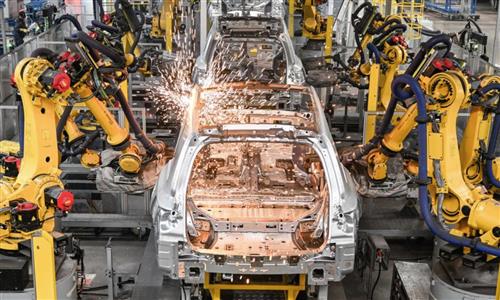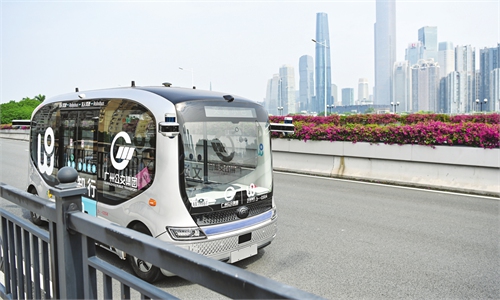
Intelligent driving Photo: VCG
Huawei's intelligent driving division on Sunday issued a safety initiative via its official social media account, urging carmakers to promote intelligent driving features truthfully and prioritize safety, echoing an industry-wide call by the China Association of Automobile Manufacturers (CAAM) to regulate marketing practices.
The initiative, launched by Huawei Intelligent Automotive Solution, was endorsed by executives from 11 car brands - GAC, SAIC, JAC, Audi, Dongfeng Mengshi, Voyah, Deepal, BAIC, Avatr, Seres and Chery.
The initiative emphasizes continuous investment in core technologies to enhance active safety capabilities, uphold quality standards and build a safety-first vehicle system. It also calls for greater transparency in marketing, urging automakers to clearly communicate the functional boundaries and usage conditions of intelligent driving features so that users can accurately understand what each system can and cannot do.
Huawei proposed to work with partner brands to launch "Intelligent Driving Safety Training Camps," aiming to help users raise safety awareness, better understand the limits of intelligent driving systems, and master proper usage through scenario-based teaching and real-time risk alerts.
Finally, the initiative stresses that safety is a shared responsibility across the auto industry and calls for collective efforts to participate in the development and continuous improvement of industry safety standards.
The response from multiple automakers and the initiative by the CAAM demonstrate both the government's and the automotive industry's commitment to promoting the healthy and safe development of the intelligent driving sector, experts said.
Wu Shuocheng, a veteran automobile industry analyst, told the Global Times on Sunday that on the one hand, official communication about intelligent driving from the government and automakers must be clear, while on the other hand, sales tactics must be strictly regulated to ensure that salespeople do not exaggerate the capabilities of intelligent driving systems.
L0-L2 systems represent basic driver-assistance functions, not autonomous driving. "Most electric vehicles in China currently operate at this partial automation level," he explained. "These systems are designed to support, not replace, human drivers."
Wu criticized some marketing practices in the industry, particularly regarding navigation-on-pilot (NOA) systems.
"Some manufacturers' promotional language risks misleading consumers into thinking these are fully autonomous solutions," he stated, emphasizing that drivers must maintain constant attention even when using NOA features.
As public discussion about smart driving safety intensifies, Wu advised realistic expectations: "While new technologies bring exciting possibilities, drivers should never become complacent. These systems require active human oversight at all times."
With the rapid development of intelligent driving, China remains at the forefront globally; meanwhile, safety is paramount, including the protection of personal, financial and information security. Wu said that these initiatives show a significant shift in awareness but to be truly effective, these guidelines must eventually be formalized into laws and regulations.
On April 21, the CAAM announced an initiative to standardize the marketing and application of driving assistance systems. It called on automobile companies to enhance product quality and safety, improve management systems and ensure clear safety protocols.
It also stressed the need for clear communication with users on system functions, proper usage and emergency procedures, helping them understand the distinction between driver assistance and autonomous driving. The CAAM encourages all companies to implement these measures and continue guiding the industry toward safe, reliable development.



